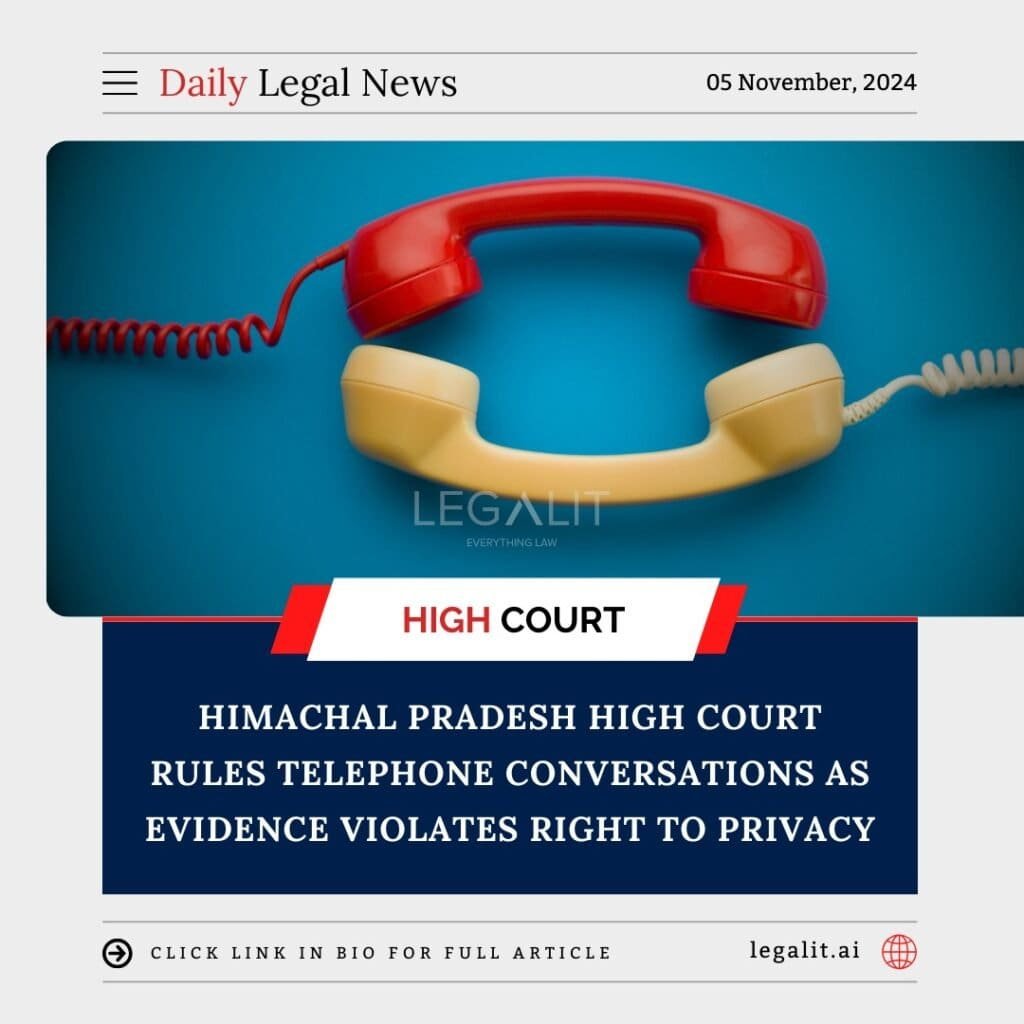
The Himachal Pradesh High Court has ruled that using telephone conversations as evidence in legal proceedings constitutes a violation of an individual’s right to privacy. This decision reflects the court’s stance on balancing the need for evidence in legal cases against the fundamental right to privacy guaranteed under the Constitution.
Background:
The ruling emerged from a case where intercepted phone conversations were used as evidence against the accused. The court considered the implications of such practices on personal privacy and the potential for misuse of technology in the legal system.
Court’s Rationale:
The bench emphasized that the right to privacy is a constitutionally protected right and that any breach of this right, particularly through unauthorized surveillance or interception of communications, undermines the principles of justice and fair trial. The court highlighted the importance of safeguarding personal communications from unwarranted intrusion.
Existing Measures:
In light of this ruling, the court may push for stricter regulations governing the interception of communications and the admissibility of such evidence in court. Legal precedents and safeguards surrounding privacy rights are expected to be reinforced as a result.
Conclusion:
The Himachal Pradesh High Court’s decision is a significant affirmation of the right to privacy in the digital age, emphasizing that any evidence obtained through violation of this right cannot be permitted in judicial proceedings. This ruling sets a precedent for similar cases and reinforces the need for privacy protections in legal frameworks.